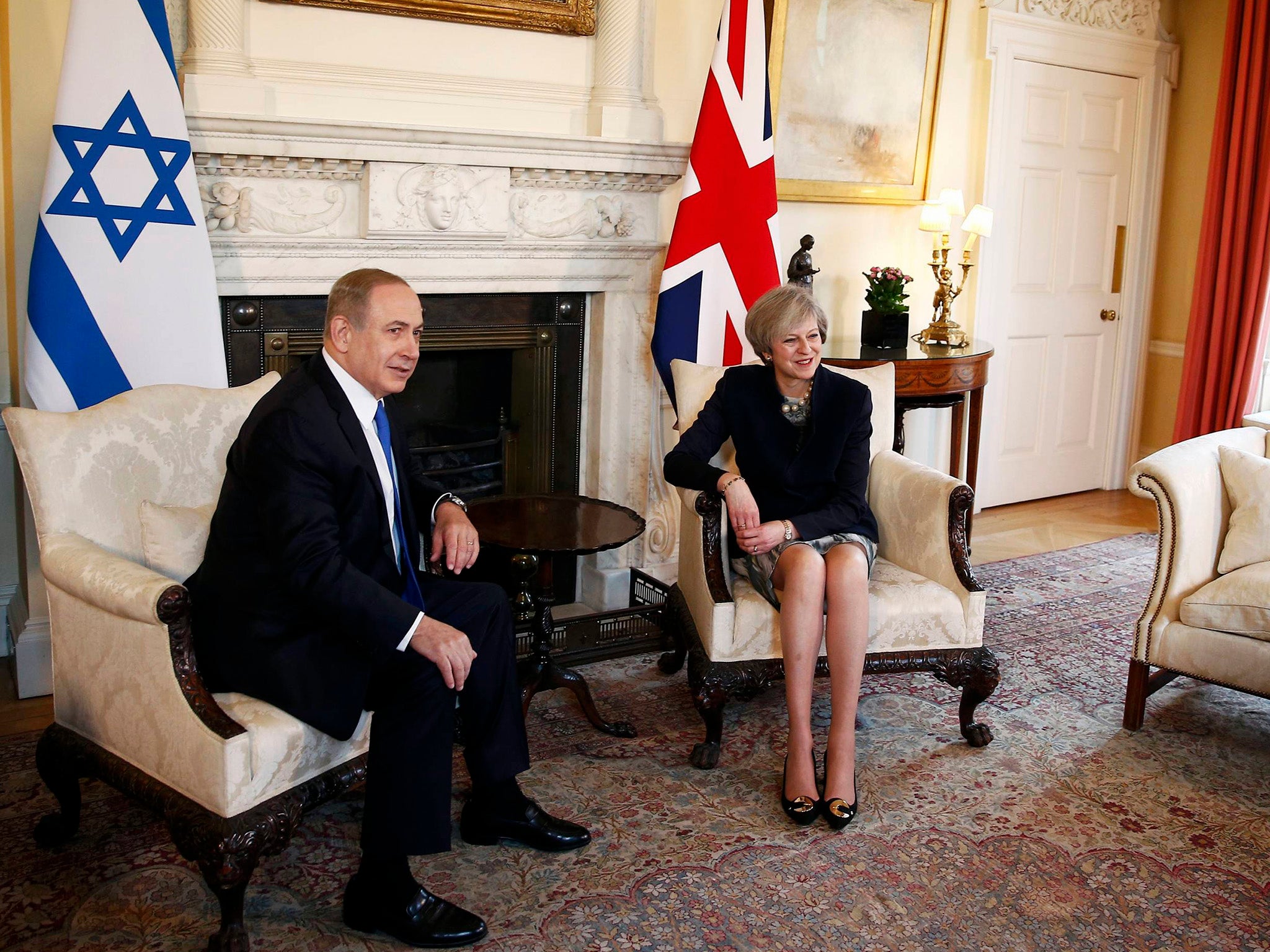Netanyahu’s hysterical rhetoric on Iran seeks to divert attention from West Bank settlement building
Talk of a ‘two-state solution’ remains nothing more than a convenient fig leaf for Israeli authorities


Israeli Prime Minister Benjamin Netanyahu gave Theresa May a frightening account during their meeting of the threat posed by Iranian aggression to Israel and everybody else. In Mr Netanyahu’s eyes, Iran is a much more dangerous enemy than Isis or al-Qaeda, seeking “to annihilate Israel, it seeks to conquer the Middle East, it threatens Europe, it threatens the West, it threatens the world.”
Even by Mr Netanyahu’s standards the rhetoric sounds excessive and is probably motivated by a wish to divert attention from Israeli settlement building on the West Bank. Within a few days of Donald Trump’s inauguration as President, Israel announced the construction of a further 2,500 housing units on the West Bank. Though the Trump administration expressed mild discontent, Israel will probably be spared more vigorous protests by Washington.
Mr Netanyahu knows that senior members of the new administration have themselves been denouncing Iran in similarly apocalyptic terms as himself. On Saturday, the US Defence Secretary James Mattis called Iran “the single biggest state sponsor of terrorism in the world”, though he added that it was not necessary for the US to deploy more military forces to counter Iran. On the previous day, the US had imposed new though limited sanctions over an Iranian ballistic missile test.
Fresh Israeli settlement building on the West Bank usually provokes cries internationally that the prospect of a “two-state solution” to establish peace between Israel and the Palestinians is being eroded or destroyed. But in reality such a solution has long been dead and buried because of the disparity in political, diplomatic and military strength between the two sides. Israel has no reason to compromise and the Palestinian Authority leadership, decrepit and authoritarian, has virtually no leverage or alternative options because of its long-standing dependence on Israeli security backing.
Israel and the Sunni Arab states of the Gulf led by Saudi Arabia are relieved to have a more sympathetic president in the White House and glad that Mr Obama has gone. The administration has adopted a much more belligerent anti-Iranian tone, but is evidently not going to tear up the deal on Iran’s nuclear programme agreed by President Obama. US policy in Iraq and Syria is directed primarily towards eliminating Isis and al-Qaeda-type groups using US and allied air power in support of local allies on the ground, notably the Iraqi armed forces in Iraq and the Syrian Kurds in Syria.
Iranian influence in the region is increasing simply because it leads what is essentially a Shia coalition of states and movements – Iraq, Syria and Hezbollah in Lebanon – that is winning the war in Syria in alliance with Russia. In Iraq, the US and Iran have long had a strange relationship which is a mixture of cooperation and rivalry. The assent of Washington and Tehran is in practice required before there is a new Iraqi prime minister.
Both Mr Netanyahu and Ms May are somewhat isolated internationally and want to take advantage of a more fluid situation in Washington under Mr Trump, but they do not know quite what direction it will take. The most important US policy decisions in Iraq and Syria are unlikely to be unstitched because they are working well and Isis is under strong pressure.
More Israeli settlement building around Jerusalem and on the West Bank undermines the idea that a “two-state solution” is feasible, but it has long been nothing more than a convenient fig leaf. A more sympathetic administration in Washington will increase pressure from the far-right inside Israel to move towards annexation of all or part of the West Bank, but real change is unlikely.
Join our commenting forum
Join thought-provoking conversations, follow other Independent readers and see their replies
Comments